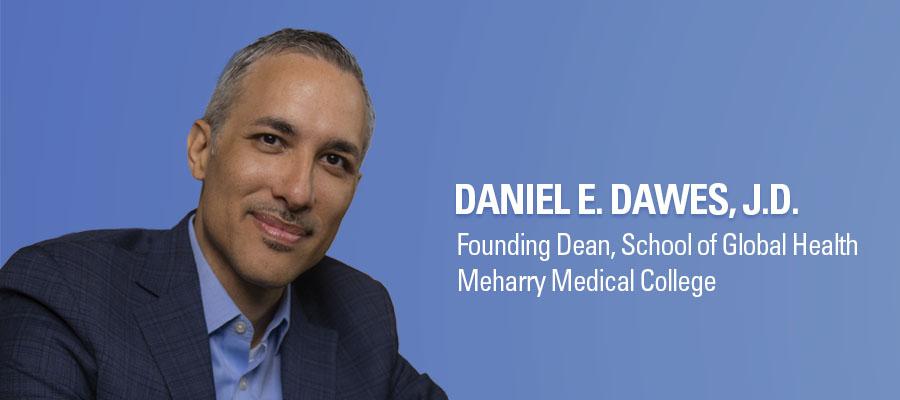Leading Towards Health Equity: What Juneteenth Means for Health Care

The Meharry School of Global Health is the realization of a promise made by Meharry Medical College almost 150 years ago — a promise born out of the legacy of Juneteenth and the ending of the Civil War. Celebrated on June 19, Juneteenth commemorates the end of slavery in the United States.
This day holds profound significance in our shared quest for health equity. It reminds us of the enduring legacy of systemic inequities and the ongoing calling to dismantle them, wherever they exist. It is a call to action to build upon the successes of early leaders within the movement to advance health equity, and an opportunity to honor their sacrifice.
At a time when the forces of ill will sought to decrease opportunities for communities of color, Meharry Medical College was born to ensure that people of any background would not be excluded or denied access to health care. This institution has been leading from the front, not the sidelines, to advance health equity and create and empower resilient leaders in every generation who are prepared to tackle the most pressing and complex health challenges of our time.
With that powerful legacy in mind, I am fueled by a deeply rooted belief that health equity is not just an aspiration but an achievable reality. We stand at a critical juncture where courageous leadership is demanded. It is imperative that we stand firm in our commitment to drive change, thus propelling us towards outcomes we have never reached.
As America becomes an increasingly racially pluralistic society, it is well documented that the widening gap in health inequalities will lead to an increased burden on health care providers. The growing cost burden to provide care to all individuals, but especially underserved populations, places further strain on health care providers who are not prepared to oversee these complexities.
The clinical interventions that do exist today do not bridge health care to the larger societal, economic and political interventions and have been mostly ineffective in addressing the downstream individual and structural factors. Therefore, after everything we have endured over the last few years, America needs a school focused on creating and sustaining health equity to confront these challenges head-on.
The Meharry School of Global Health will be that bridge — connecting disjointed systems and processes that until now, have operated independently and ineffectively. To make health inequities history, we must collaborate beyond the walls of industry to truly equip leaders to meet the needs of our increasingly diverse and interconnected society.
I believe we all have the opportunity when it comes to health equity to LEAD WHERE YOU ARE.
Knowing this, our vision has never been clearer:
- Health equity IS within our reach.
- We are on the brink of achieving what was once deemed unattainable.
- With courage and steadfastness, we can move the needle and make substantial strides toward a more equitable health landscape.
Why We Are Establishing the Meharry School of Global Health
Why do we seek to bolster population health? Our school is committed to addressing the root causes of health inequities and fostering equitable access to health care for all. This naturally extends to leading and generating solutions not only in the scope of traditional medicine or even public health but by taking a social justice, fairness and equity lens to factors that enable or prevent people from achieving their best level of health.
Our efforts extend far beyond the confines of academia, reaching into the heart of communities where the impact of our work is most deeply felt. Through a transdisciplinary approach encompassing research, education and community engagement, we actively strive to effect change that can be operationalized, actualized and acted upon, not just studied.
Last month, the Meharry School of Global Health released findings on the costs of mental health and select physical health inequities and concluded that the United States currently spends an estimated $477.5 billion annually on avoidable and unnecessary expenses related to mental health inequities. This is a burden we all share. By highlighting the integral link between mental health, physical conditions and the political, commercial and social determinants of health, the report underscores the urgency of addressing these issues — not only as a moral imperative but as one that has far-reaching benefits to all areas of society, including economics and national security. The projected costs amount to approximately $42,000 per person living in the United States. These are real dollars that affect us, our children and our future.
Our journey into global health is fueled by a deep sense of purpose: to leverage Meharry's profound expertise and address the root causes of health inequities. Each day, our team at the School of Global Health is driven by the belief that our collective efforts can significantly impact individuals and communities worldwide. We are committed to educating and training the next generation of health leaders, equipping them with the knowledge and tools to tackle these complex issues.
The current workforce, including you reading this right now, has the unique opportunity to integrate health equity into every aspect of work. Just as health is influenced by multiple factors, our solutions must be multifaceted. That is why new thinking and creative ideas are needed now more than ever. The School of Global Health is here to welcome and empower you, meeting you where you are, in our shared quest for equity.
Daniel E. Dawes is the founding dean of the Meharry School of Global Health at Meharry Medical College and author of the book “The Political Determinants of Health.”
Please note that the authors’ views do not always reflect the views of AHA.
